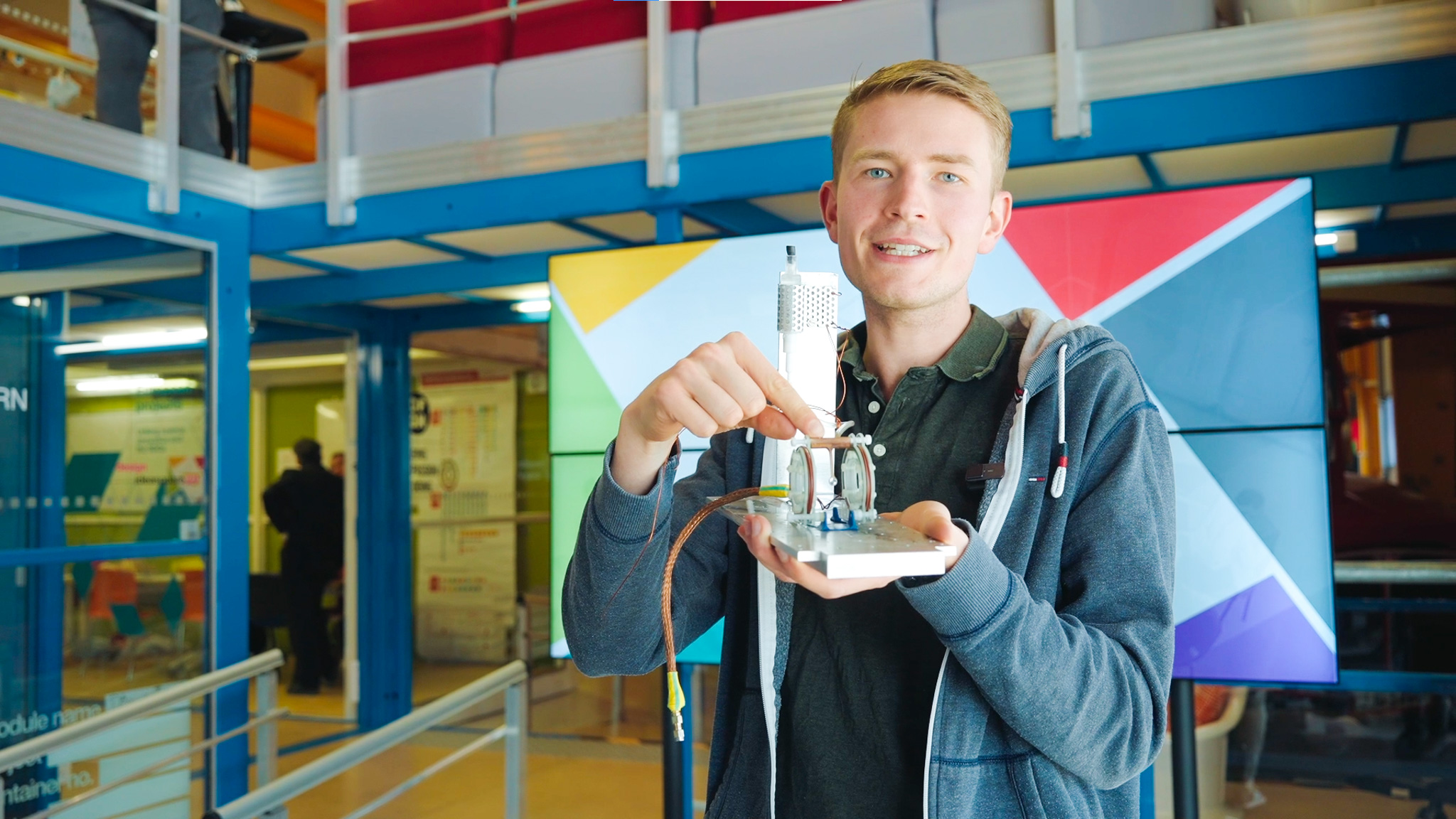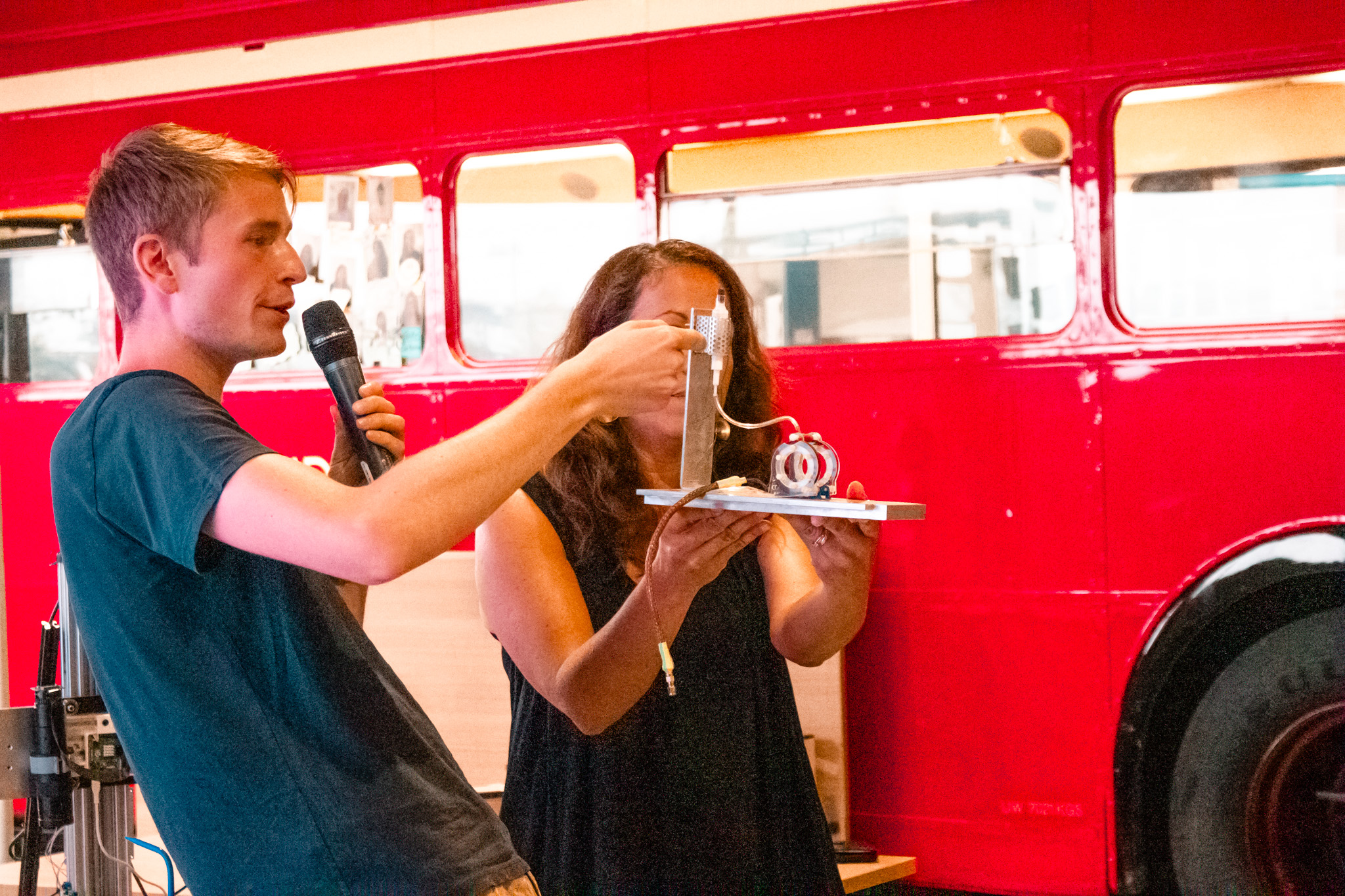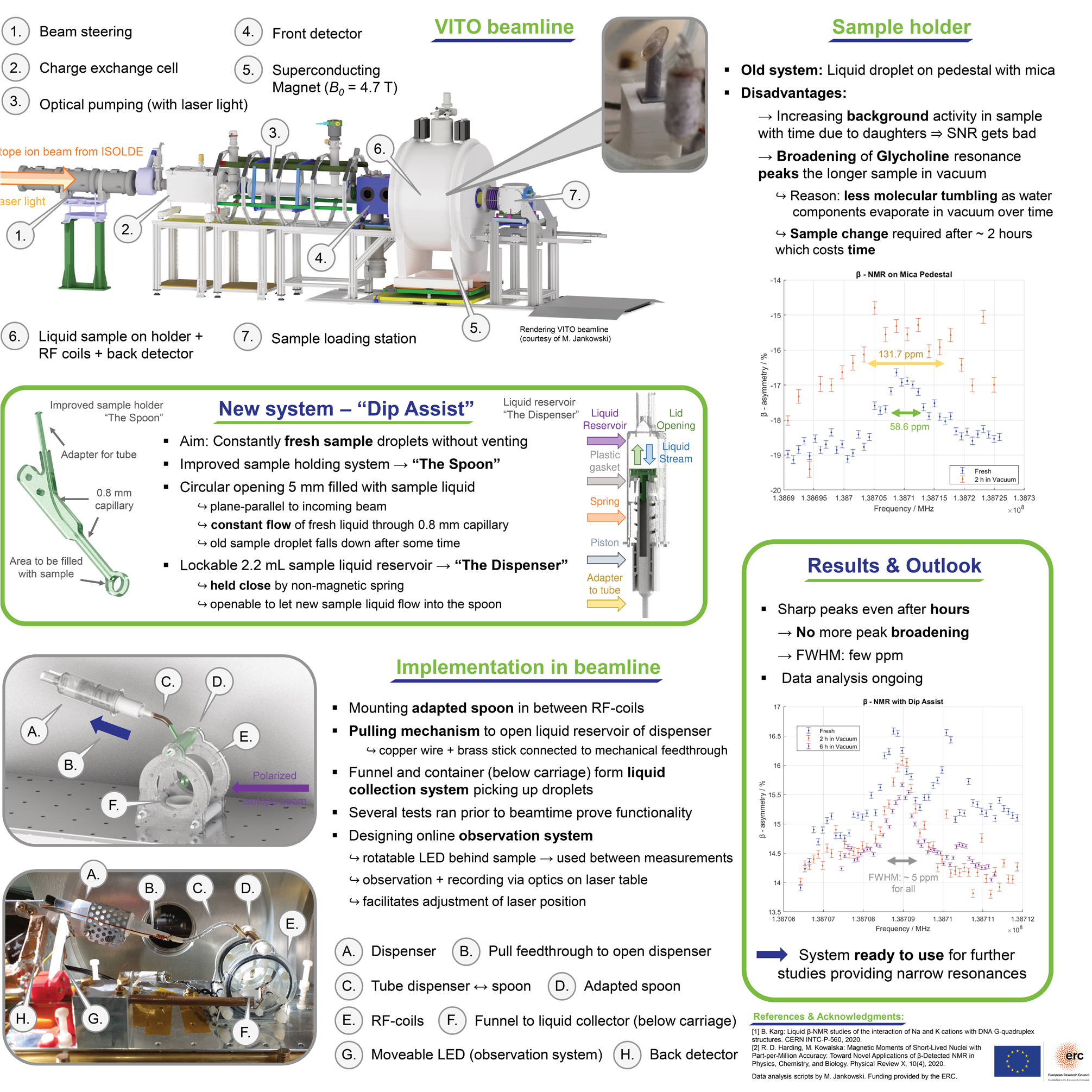Prototype profile: Liquid Sample Dispensing System for β-NMR Studies in Vacuum

β-NMR has proven its capabilities and advantages in the world of nuclear spectroscopy: Not only does it open the door to high precision measurements of nuclear properties, but it also facilitates investigations of unstable, short-lived isotopes, otherwise inaccessible to conventional NMR. Additionally, β-NMR allows for real-time observations of chemical processes, such as biomolecular folding mechanisms.
Recently, the VITO collaboration has been striving towards novel applications of this technique in interdisciplinary fields. One of the ongoing projects aims at investigating the dynamics of selected DNA structures and their interaction with different alkali metals. Deep eutectic solvents, such as Glycholine, are used as hosts for these biological samples.
 Performing experiments with liquid samples in a high vacuum setup poses technical challenges, not faced in typical nuclear spectroscopy. So far, a simple support with a plate on top is used to position the liquid sample for beam implantation. Exchanging the droplet, however, is time consuming, as it requires venting and opening the beamline. At the same time, prolonging the measurement duration without changing the sample would increase background activity from daughter nuclides, thus introducing additional noise.
Performing experiments with liquid samples in a high vacuum setup poses technical challenges, not faced in typical nuclear spectroscopy. So far, a simple support with a plate on top is used to position the liquid sample for beam implantation. Exchanging the droplet, however, is time consuming, as it requires venting and opening the beamline. At the same time, prolonging the measurement duration without changing the sample would increase background activity from daughter nuclides, thus introducing additional noise.
Addressing this issue, a new project has been launched at the VITO beamline, aiming to develop, test and implement a new sample holding and dispensing system. Not only does the design presented with this poster contribution reduce the need of opening the beamline, but it continuously provides fresh samples for implantation. Thereby, it contributes to a more efficient measurement process and an enhanced signal to noise ratio.

Prototype by Tobias Treczoks and Nikolay Azaryan